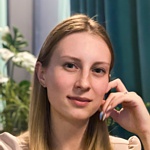
Gender Equality: Civilizational Gaps (Institute of Foreign Languages)
SDG 5

About the Session
The African continent is the cradle of civilizations and the new centre of the modern world, whose sovereign development in gender equality will make it possible to ensure peace, prosperity and sustainable development in these 62 countries.
Despite advances in many areas among women, such as women’s parliamentary representation (30% or more in 13 African countries), discriminatory laws and social norms continue to prevail.

